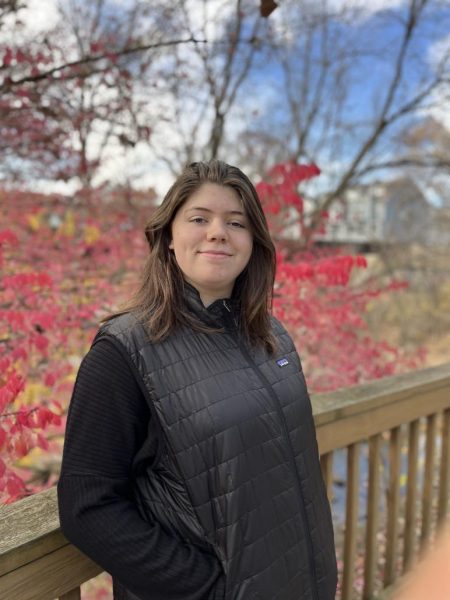Everyone grows up spending their childhood doing something they love. Whether that’s playing outside, hanging out with friends, or spending the afternoon drawing, whatever made them the happiest.
For sophomore Henry Oxley that meant watching and then rewatching his favorite movie, Cars, every single day.
“I’m not exaggerating,” Henry said. “Whenever a commercial came on, I would cry. Maybe that might have been it. The film that made me love films.”
Henry never felt connected to anything more than he felt connected to movies. Video games never interested him and could get quite frustrating. Television, especially the longer shows, felt too boring to watch.
But with movies, they only lasted up to two to three hours. And movies felt so much more alive and interesting. Depending on when they were shot, to Henry, they could bring to life a time of history or actors that had long passed.
“They’re like time capsules,” Henry said. “If I watch a movie released in the year 1954, I get to see a slice of 1954. If I watch Humphrey Bogart light a cigarette in Casa Blanca. I’m watching a real guy smoke a cigarette who’s been dead for 50 years. I can literally bring the dead back to life through the power of the play button. I think that’s beautiful.”
And unlike shows, Henry found that the long history of films delved deeper into history than he once thought. The first film ever to be recorded was in 1878 when some guys took a bunch of pictures and lined them up together to create a movie.
Then cinema was born in 1895, with the first French film, giving rise to mass production of movies around the world. Connecting the world globally as well, allowing Henry to find ways to connect to other cultures by simply experiencing them through film.
“I do watch the films, trust me,” Henry said. “But even if I didn’t, I could look into it. I could do so much research and think so much about these great artists and people. It’s hard to get that anywhere else, I suppose.”
And more importantly, movies could influence each other or even future generations of cinema. Henry explained that considering how history impacts our media, how can we see that current films take direct inspiration from older films?
“Even the Marvel movies and stuff you watch today can be traced back to movies like Breathless, Cléo from 5 to 7, and Hiroshima, Mon Amour,” Henry said. “I think that’s neat.”
But what made Henry enamored with movies was the style and swagger they presented to him through the screen.
Movies like Casino, No Country for Old Man, Goodfellas, and Reservoir Dogs bring out the true potential of films and how they can capture the imagination and life of the world. These were the movies that made Henry realize how great of an art form films could be and sparked a fiery passion that made Henry want to devote his life to this art.
“If I could be a critic of sorts, or write for a magazine, or maybe even be a professor.” Henry said, “I’d love to teach a class about the French New Wave, which was a big thing back in the 50s and 60s, when French filmmakers started to change their styles wildly and all these new voices came in, changing cinema forever.”
But doing such jobs would be in the far future, so Henry came up with an idea. To help spread his love of cinema and films he started his own club: the Film Society.
Every Tuesday, Henry would select a movie that the club would watch together after school. They could discuss the film and how it reflects the period it was created in.
Henry saw value in teaching this generation about the importance of old films, and how versatile they could be. Silly or meaningful, dramatic or realistic, Henry felt like every student should have the opportunity to embrace what made films what they are today.
“I want to give people at the school a chance to watch more films from more places, from more decades, to see more stories and analyze more films.” Henry said, “Because they are so deep and meaningful, especially to me.”




























































































